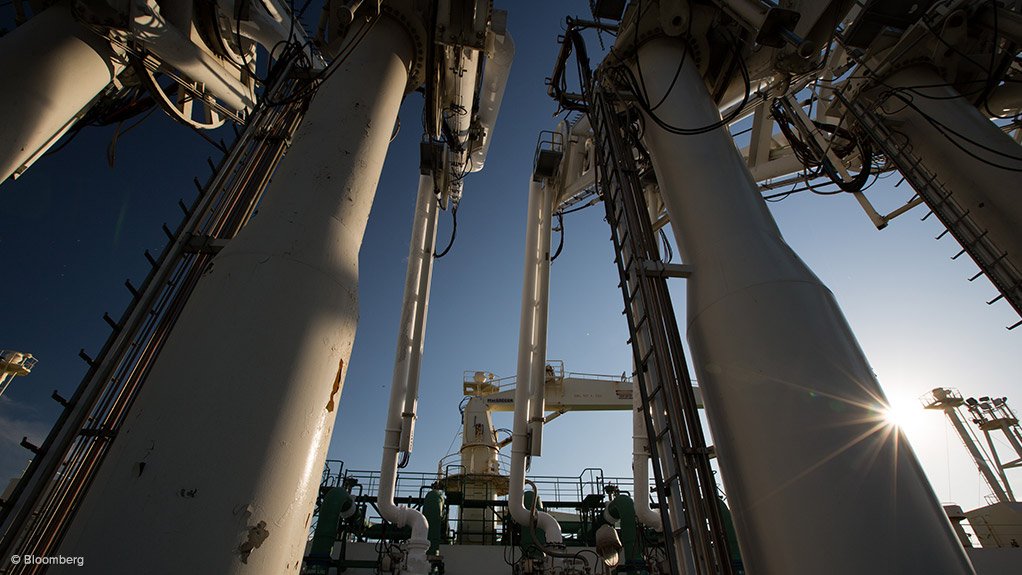PERTH (miningweekly.com) – While the Australian Petroleum Production and Exploration Association (Appea) has welcomed the recommendations made by the Australian Competition and Consumer Commission (ACCC) in its East Coast Gas Inquiry, greens groups have labelled the report as “confused”.
The ACCC on Friday released a report on its inquiry into the competitiveness of wholesale gas prices in eastern and southern Australia, recommending regulatory changes to encourage new supply into the market.
“There has been unprecedented change in the east coast gas market over the last four years with the development of liquefied natural gas (LNG) facilities in Queensland. These changes have created winners and losers, and industrial gas users in particular have been acutely affected by the transition,” ACCC chairperson Rod Sims said.
“The triple whammy of the introduction of LNG and with its exposure to international gas pricing, a fall in oil prices leading to a downturn in exploration and new development, and regulatory uncertainty and exploration moratoria, has created an increasingly complex environment for many gas market participants.”
“The future supply outlook is uncertain. Meeting future domestic and LNG demand will require extensive development of undeveloped gas reserves and resources. Sufficient gas is currently forecast to be produced in the east coast gas market to meet domestic demand and existing LNG contract commitments until at least 2025, but there is uncertainty over the timing of some developments, particularly due to low oil prices.”
Sims noted that some suppliers had taken advantage of the supply uncertainty and potential shortfalls by increasing prices and implementing more restrictive non-price terms and conditions.
In its report, the ACCC suggested a number of recommendations that state and territory governments could consider to alleviate the gas market issue, including enabling the gas supply to come to market, revisiting the regulatory coverage of pipelines and increasing the ability for pipelines with market power to be regulated, as well as the consistency and transparency of the provision of information to the market.
“Compounding supply tightness and the effects of pipeline pricing, is the effect of an opaque and illiquid east coast gas market. Confidential bilateral negotiations remain the norm for both gas supply and transportation contracts. The lack of consistent, publicly available data on the sector is an impediment to participants, investors and policy makers,” Sims said.
He added that while market conditions had been difficult, it was important that new supply came on line, and that new opportunities in the gas sector were developed.
“More supply, new suppliers and an increased diversity of supply sources are crucial for the future competitiveness of, and pricing in, the gas market,” Sims said.
Appea has welcomed the report, with CEO Malcolm Roberts saying the findings highlighted that the greatest risk to the market was regulatory failure, and not market failure.
“The ACCC confirms that removing unnecessary government restrictions on exploration and development is the most effective way to boost supply, enhance competition and put downward pressure on prices.
“Australia has ample gas resources to supply domestic and export markets, if industry is allowed to develop these resources. But, at a time of unprecedented demand, government policies risk creating an artificial shortage of gas and higher prices,” Roberts said.
“The effects of an unnecessarily tight market are already being felt, especially in industry where gas is both a source of energy and an irreplaceable feedstock for manufacturing products such as glass and packaging.”
However, greens group Lock the Gate Alliance said that the ACCC’s report “missed the point”, and ignored the concerns in the community around the “uncosted” impacts of unconventional gas.
“The ACCC acknowledges that the cause of the current disruption in the east coast gas market was the rushed development of LNG exports from large new coal seam gas development in Queensland, but bizarrely, it seems to propose that more rushed unconventional gas development will alleviate this problem,” said the alliance’s national coordinator Phil Laird.
“The environmental and social costs of gas to consumers and to affected communities has not been properly considered by the ACCC.”
Laird noted that the reasons why moratoria were in place in Victoria and Tasmania, and were being considered in the Northern Territory and New South Wales, was because environmental regulation, insurance and management were not “up to the job” of preventing irreversible damage being inflicted on the public by unconventional gas operations.
“Weak, ambiguous approval conditions blur company liability and the failure to ensure gas drillers hold comprehensive environmental insurance to mitigate risk of environmental harm means that the gas industry is freeloading on the environment and affected communities,” he added.
Laird has called on the ACCC to review its report and engage with communities around the impacts of unconventional gas operations.
Edited by: Mariaan Webb
Creamer Media Senior Deputy Editor Online
EMAIL THIS ARTICLE SAVE THIS ARTICLE
To subscribe email subscriptions@creamermedia.co.za or click here
To advertise email advertising@creamermedia.co.za or click here













